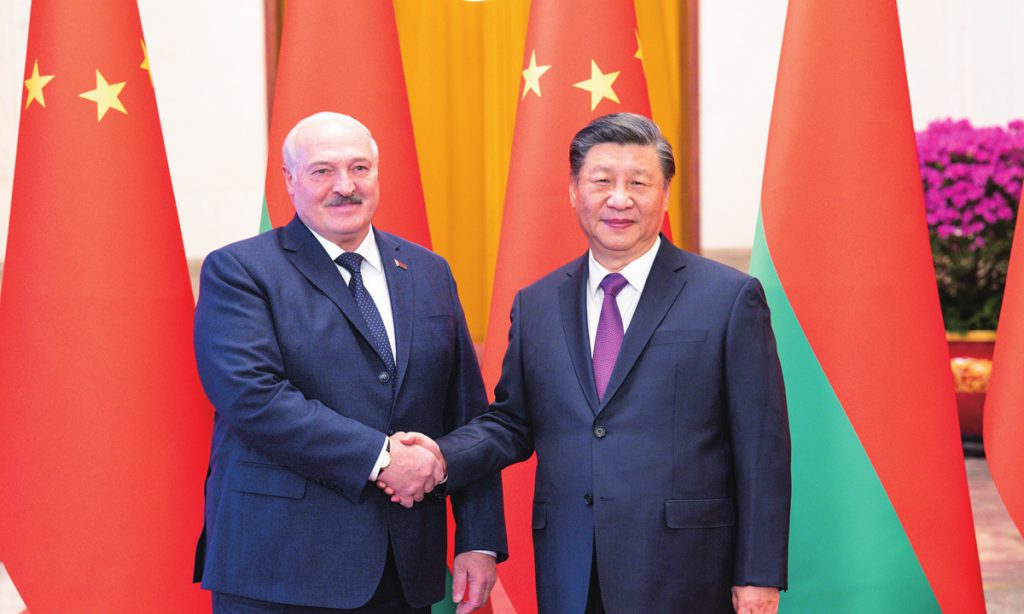Many developing countries in Asia, Africa, and South America have expressed their interest in joining the BRICS alliance in 2024. The de-dollarization agenda seems lucrative to developing nations that want to make their local currencies and native economies thrive. The US dollar is dampening the prospects of local currencies and eliminating the USD for trade is a way to push their currencies up.
Also Read: BRICS: New Country Plans To Ban the US Dollar for Trade
Read here to know how many sectors in the US will be affected if BRICS ditches the dollar for trade. While BRICS expansion was limited to Asia, Africa, and South America in 2024, now countries in Europe are also looking to join the alliance.
BRICS: New European Country Looks To Join the Alliance in 2024
Source: Global Times / Photo: Xinhua
Belarus is the Eastern European country that is looking to join the BRICS alliance in 2024. The President of Belarus, Alexander Lukashenko said that the European country is ready to join the integration processes within the BRICS framework.
Also Read: BRICS Expansion: New Country Shows Interest To Join the Alliance
Lukashenko explained that BRICS can help Belarus revive its economy and maintain a balance of trade and finances. He stressed that joining the BRICS alliance in 2024 will help bring stability to its native economy. “We are interested in getting involved in integration processes in that space. BRICS is another footing to help us maintain balance and economic stability,” said the President to Belta News.
If Belarus gets inducted into the BRICS alliance in 2024, then many more Eastern European countries could join the bandwagon. BRICS could use Belarus to penetrate Eastern Europe and get developing countries to settle trade in local currencies. The US dollar will remain in jeopardy if many more countries begin to cut ties with the currency.
Also Read: US Dollar Gives a Major Blow To BRICS Nations’ Currencies
However, there is no guarantee that Belarus will join the BRICS alliance in 2024. The expansion is consensus-based and all existing members have to agree for the Eastern European country to join the bloc.
